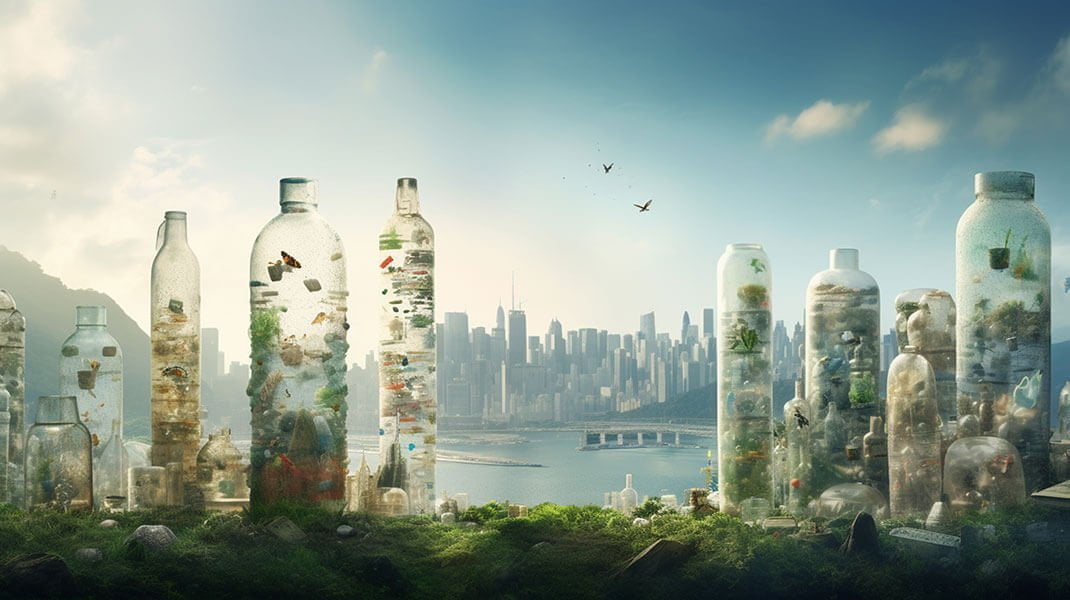What are the impacts of plastics on humans and the environment?

Plastics are a major technological innovation of the 20th century, offering flexibility in product manufacturing, durability and low cost. However, the production and use of plastics has multiple environmental impacts.
1. Overproduction of plastic waste: It is estimated that more than 300 million tonnes of plastics are produced annually. Many of these end up in landfills, in the oceans or burned, releasing toxic substances.
2. Plastics in the oceans: It is estimated that around 8 million tonnes of plastics enter the oceans every year. These plastics can end up in the stomachs of marine animals or turn into microplastics, endangering both marine biodiversity and human health.
3. Microplastics: By fragmenting, plastics are turned into tiny pieces called microplastics. These are incorporated into the food chain, affecting not only marine creatures but also the health of people who eat seafood.
4. Chemicals: Plastics contain multiple hazardous chemicals, many of which leak into the environment. Some of these substances are endocrine disruptors, which cause major problems for human health.
5. CO2 emissions: The production of plastics is energy-intensive and therefore contributes to greenhouse gas emissions. Burning plastics further increases their CO2 footprint and many other hazardous chemicals.
6. Lifespan: Plastics do not biodegrade easily. Depending on the type of plastic, it can take tens to thousands of years to decompose.
7. Economic impact: The impact of plastics on the oceans has significant economic costs for the fisheries and tourism sectors.
8. Visual pollution: Plastic bags and plastic bottles left in the environment cause visual pollution, altering the natural beauty of landscapes.
9. Danger to wildlife: Many animals, such as turtles, consume plastic mistakenly believing it to be food. This can cause a blockage in their stomach system and eventually their death.
10. Dependencies on fossil fuels: Most plastics are made from oil, so their production depends on the extraction of fossil fuels.
In summary, plastics, although they have contributed to technological development and our daily lives, have multiple negative impacts on human health and the environment. It is necessary to immediately consider new approaches to the production, use and recycling of plastics in order to protect the environment and our health.







